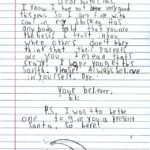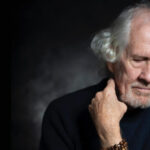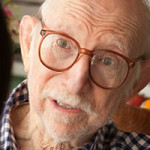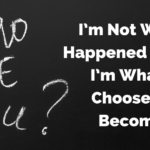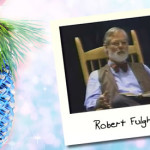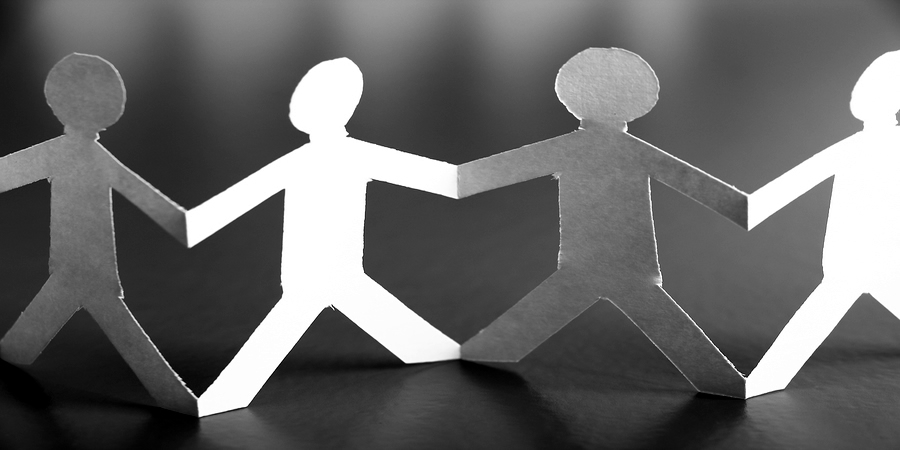
The following opinion column was written by Rabbi Aryeh Ben David. Aryeh grew up outside of NYC and studied psychology at Vassar College. He moved to Israel in 1978, received Rabbinic ordination from the Israeli Rabbinate and now lives in Efrat, Gush Etzion, with his wife Sandra and their six children.
He served as the Rabbinical Educational Consultant for Hillel International from 2004 – 2007, and spearheaded their spiritual initiative throughout the United States.
After many years in the classroom, teaching Torah, Talmud, prayer, ethics, and interpersonal relationships, Aryeh sought a way to enable students to more deeply engage with Judaism and to explore their spiritual identities. This led to the development of Soulful Education and the creation of Ayeka in 2008.
I found Ben David’s recent column in The Times of Israel interesting.
Many years ago I practiced actively caring about people. Like Aryeh, I didn’t say anything to them, I just spent time wishing them well privately – be it the grocery checkout person, the person making my Starbucks coffee—or friend.
I was amazed at the response. People had no idea what I was thinking, but they picked up on my being “there”—sharing the moment with them.
They felt seen.
It didn’t last of course. Like not eating sugar, I didn’t do it long enough for it to become part of who I am. But after reading Ben David’s column, I am going to give it another shot.
Current times require we “do something”—anything to keep us connected.
There is, indeed, an ongoing effort to disrupt American society from outside our boundaries. Can we drop the politics long enough to realize the interference is working – and do our part to keep the word “united” in our name?
The blessing of ‘I love – you’
by Aryeh Ben David
In my old age, I am discovering love.
Not romantic love. I found the love of my life 40 years ago.
I am finally discovering what it means for me to say, “I love you”.
Is saying “I love you” more about the “I” or the “You”?
For way too many years, my saying “I love you” was much more about my experience, the “I love” part. It was about the emotional vulnerability and the adrenaline rush. Saying “I love you” was exciting, raw, daring. I loved how I felt when the words broke through. Even when “I love you” was just the closing of phone conversation, I loved the emotional connection I had with someone else.
But what if saying “I love you” is more about the “you” than the “I”?
What if saying “I love you” is about my acknowledging something uniquely special about you, and not about how I feel? What if saying “I love you” was the code phrase expressing: “There is something infinitely priceless about you, something unconditional and unwavering”. To paraphrase the poet Hafiz, “You have been invited by God to dance at this world’s party. It’s a very select dance list”.
Yes, of course everyone has a soul worthy of loving. But that’s not what I mean now.
What I am discovering now is not so much a general love for everyone being created in the Image of God, but more of a particular and granular form of love. Not so much looking at the beach as seeing each individual grain of sand.
It’s not about having a soul, it’s about having a completely different soul than anyone else.
Rav Kook writes that at the core of every soul there is a “shoresh haneshama” (soul root), a unique quintessential kernel of each soul which will hopefully grow and find expression in this world. Everyone has a different soul root. Shoresh haneshama is the soulful equivalent of a fingerprint. Everyone has an individual soulful DNA which is the blueprint for the unique presence they came into the world to build.
It’s not just that everyone has a soul worthy of love, it’s that everyone has a unique shoresh haneshama which is uniquely worth loving and worth loving uniquely.
Stemming from this idea of each person’s shoresh haneshama, Rav Kook wrote in his diary that he “cannot not love every human being”. I don’t have this problem; there are numerous people that I find quite easy not to love. Yet, and I worry this may sound pompous or grandiose, I’ve started aspiring to feeling the same way. I grant you that I’m still a work-in-progress regarding how to do this and what this love actually is. It’s not only an emotion. It’s not only a theological premise. It’s more of a belief. A belief that each human being is distinctively essential to the puzzle of this world and potentially offers a singular contribution to its healing. And that distinctiveness is worthy of noticing and loving.
I wish I could say “I love you” to everyone in a way that was uniquely theirs.
Saying the same words in the same way to different people robs them of their deeper truth. It’s not that “I love you”, but it’s “I love you”. I wish I could say “I love you” in an infinite number of colors. In a limitless range of notes and melodies. Everyone would have the color and tune and even a special fragrance that was just for them. Then hearing their personal “I love you” would raise their awareness of how special and requisite they are in this world. “I love you” wouldn’t just be a closing at the end of a phone call, but an empowering summoning and reminder to each person of their indispensable significance. It would cease to be so much about the “I”.
What would happen if I tried to express this love for all human beings?
What would happen if I said “I love you” to the kid at the supermarket?
What would happen if I said “I love you” to the guy at the gas station?
What would happen if I said “I love you” to the old woman living next door?
Would they look at me in wonder?
Would they stare quizzically?
Would they call the police?
Would they know that I was serious?
I tried doing it yesterday. I didn’t say “I love you” aloud. I whispered it to myself whenever I bumped into someone, each time with a different nuance. It was very demanding work. The first person I met has annoyed me for years. I challenged myself to imagine his shoresh haneshama and find something worthy to love. It only took a few seconds. Then a stranger entered our neighborhood. He would have been easy to ignore. I made a kind gesture.
It changed how I looked at people. It changed how I walked through the day.
Before eating a piece of food, we make a very short blessing to raise our awareness and alter how we interact with the food. This apple is not “just a piece of fruit”. We say, “borei pri ha’etz” (Creator of the fruit of the earth), reminding us that this apple is a direct descendent from the creation of the world. We take a few seconds to appreciate all that transpired (the planting, harvesting, transporting) for me to meet this apple. In just a few moments we transform the experience. It becomes a holy encounter.
This is what I am trying to do now with my relationships. Imitating the saying of a blessing, I say to myself “I love you. You have a shoresh haneshama which is priceless and vital to this world,” before interacting. Like a blessing, it only takes a second or two.
These are not easy days we are going through. Big issues are evoking a lot of anger and dissension; small issues are provoking complaining and quibbling. What might happen if we said a short blessing: “I love you. You have a shoresh haneshama which is priceless and vital to this world” before the conflict? We could use a lot more love.
My little “blessing” takes only a few seconds. So far, it is helping me discover a new awareness of love. And sometimes, I even say it to myself.


